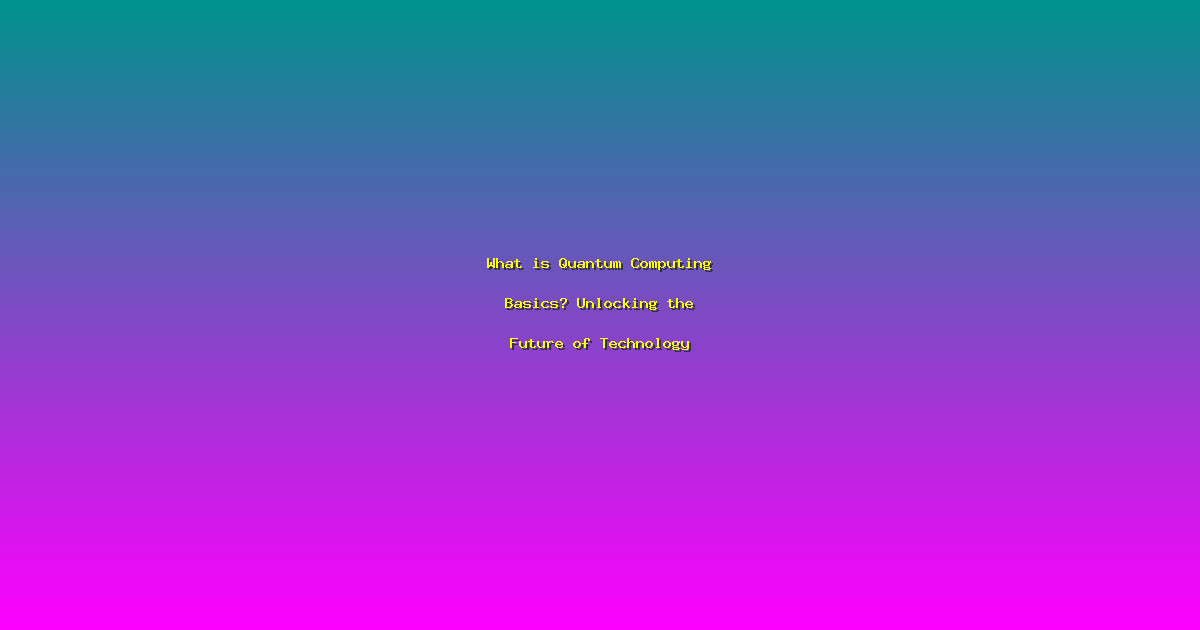What is Quantum Computing Basics? Unlocking the Future of Technology
Quantum computing represents a radical leap in computing technology, promising to solve some of the most complex problems that are beyond the capabilities of today's classical computers. This article explores the basic principles of quantum computing, why it's important, and how it will shape the future of technology.
Understanding the Basics of Quantum Computing
Quantum computing is based on the principles of quantum mechanics, a branch of physics that studies the behavior of particles at the smallest scales. Unlike classical computers, which use bits to process information, quantum computers use quantum bits, or qubits. A qubit can represent a 0, a 1, or both values simultaneously, thanks to the quantum phenomena of superposition and entanglement.
Why Quantum Computing Matters
The ability to handle multiple calculations at once makes quantum computing particularly powerful for certain types of computations, especially those involving large data sets or complex simulations. Fields such as cryptography, drug discovery, financial modeling, and artificial intelligence stand to benefit immensely from advancements in quantum computing technology.
FAQs about Quantum Computing Basics
1. How does a qubit differ from a classical bit?
A classical bit can be either 0 or 1, whereas a qubit can be in a superposition of states, being both 0 and 1 simultaneously. This allows quantum computers to perform many calculations in parallel.
2. What is quantum entanglement?
Quantum entanglement is a phenomenon where quantum particles become interconnected and the state of one can depend on the state of another, no matter the distance between them. This property is crucial for quantum computing and quantum communication.
3. When will quantum computers replace classical computers?
Quantum computers are not expected to fully replace classical computers but rather complement them, tackling problems that are too complex for classical systems. They will likely work alongside classical computers in a hybrid system.
4. What are some applications of quantum computing?
Quantum computing can significantly speed up processes in areas like cryptography (for both security and attacks), drug and materials discovery, and optimizing complex systems, such as logistics and financial portfolios.
5. Are quantum computers already being used?
While still in early stages of development, quantum computers are already being used in research and specialized applications. Companies and research institutions are actively developing and testing quantum computing technologies.
Conclusion and Call to Action
As we stand on the cusp of a new era in computing, understanding the basics of quantum computing can help us appreciate its potential to revolutionize various sectors. Whether you're a tech enthusiast, a professional in a relevant field, or simply curious about the future of technology, keeping an eye on advancements in quantum computing will be crucial. Stay informed and explore how this technology might impact your interests and industries.

